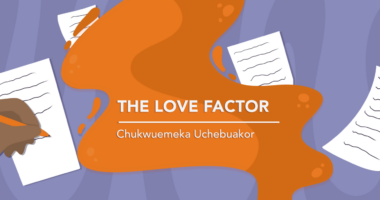How I decided to disclose my Parkinson’s disease at work
The choice is yours, but know that I found support beyond my expectations

When I was diagnosed with Parkinson’s disease at 36 years old, I was just reaching the acceleration curve in my career. I was somewhat known in my industry, enjoyed my job, had great colleagues, and traveled the world meeting with clients and speaking to groups of people.
For most people, ages 35 to 55 are prime years in terms of earning potential and impact on your industry or job. Ages 35 to 55 are not typically when people hear they have a devastating, degenerative, incurable neurological disease. Only about 2% of the million or so people in the U.S. with Parkinson’s disease were diagnosed before turning 40. I like being rare, but that wasn’t the rarity I was looking for!
So I had a choice to make: tell my work and industry colleagues about my illness and potentially risk my growing career, or try to hide it to keep the status quo.
When the moment came
Now, I say I had a choice, but by the time I was diagnosed, my movement issues were becoming noticeable. I shuffled, and my speech was starting to be affected, and I could no longer stand on stage for a full hour and give a presentation. Publicly, I blamed a bad back when I needed a stool to present, or when I moved stiffly. But the stress of hiding it caused my symptoms to worsen.
Finally, about five months after my diagnosis, I told my bosses, and shortly thereafter — using a public blog — the broader community I worked with. I was amazed by the response. I figured no one would be mean, but the number of people who started sharing stories of loved ones with the disease, or who offered their help, was incredible. Voicing my fear and vulnerability gave them a chance to share theirs.
The stories I heard were incredible. I heard from children of early-onset Parkinson’s disease patients whose parents had wanted to keep it a secret. They grew up in fear of someone coming to the house and finding out, or that they might let something slip in conversation. They grew up with the double stress of having a sick parent and having to hide it.
I heard from industry colleagues who had their own secret battles with disease. One day, I even had a nurse in a hospital tell me she’d been diagnosed with early-onset Parkinson’s disease but hadn’t told her bosses yet for fear of losing her job.
Choosing to tell my story opened up more doors than it shut. I found out that when I told my audiences up front about my illness, they paid more attention to the topic I was speaking on, because I’d solved the mystery for them before it began. An audience feels safe when they know what’s going on, and when I told them I had Parkinson’s disease, they could start to ignore the shaking, shuffling, or slurring. I used to say, “I have Parkinson’s disease, so don’t worry if I look wobbly or start to slur a little. I’m not drunk. Or maybe I am, and now you’ll never know!”
I can’t tell you when or if you should tell anyone about a diagnosis of any illness, including your family, friends, or employers. That’s up to you.
But disclosing my illness allowed me to ask for help, and also gave me a way to speak for those who can’t. My employer and clients received me with open arms and accommodation. I’m sure I’ve also lost opportunities along the way because I made people uncomfortable or they thought I was weak. And over the years, I’ve had to choose to put my health first. But 12 years later, I’m showing no signs of stopping.
I know my choice to disclose was right for me. It gave me a voice and a platform. I know it helped others to hear my story. It’s why I get to write this column today. And I hope to be an example that blows up the myth that people with Parkinson’s disease can’t work. Whether or not you feel comfortable sharing your diagnosis, know that there are lots of us out here fighting with you.
Note: Parkinson’s News Today is strictly a news and information website about the disease. It does not provide medical advice, diagnosis, or treatment. This content is not intended to be a substitute for professional medical advice, diagnosis, or treatment. Always seek the advice of your physician or another qualified health provider with any questions you may have regarding a medical condition. Never disregard professional medical advice or delay in seeking it because of something you have read on this website. The opinions expressed in this column are not those of Parkinson’s News Today or its parent company, Bionews, and are intended to spark discussion about issues pertaining to Parkinson’s disease.







Genevievve Edwards
When I tell people they react as if I said I had a cold. Saying what do you take for it how long does it last take my hand to stop the shake
They just don't know
Tonya
You are an amazing and extraordinary person Mollie.
Thank you for your generosity in sharing this story.
Kimball Magonii
Courageous and well said! A real warrior!